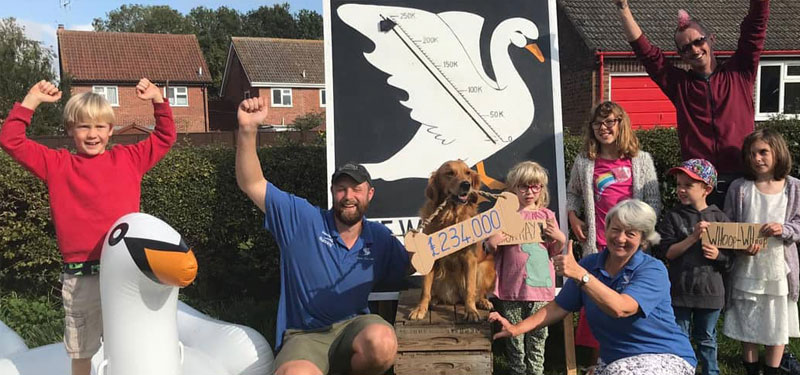Community pub
Number of shareholders / members
420
Share offer
Price for Freehold
£185K
Finances
Total raised in community shares
£260K
Opening date
Population served
About The Swan at Gressenhall
This rural pub at the heart of Gressenhall village in Norfolk was first licensed in 1795 and is the last remaining of 7 local pubs. Over recent years it was run as a tenanted model and then as a Free House, but in July 2018 it closed for good. Since then, the Gressenhall Community Enterprise group has campaigned tirelessly to bring it under community ownership, rounding off these efforts with a spectacularly successful community share offer in the middle of the Covid 19 pandemic in 2020. They completed their purchase in January 2021.
Naturally during a long campaign of more than two years, energy ebbs and flows both within the committee and among the public. The group knew it was important to create a resilient culture that would endure. Having a very specific mission statement was hugely beneficial; they did lots of outreach, research, and documented their process closely. Very accurate Minutes of meetings were kept, and a tight meeting schedule, as well as lunch visits to other community pubs which gave the group a taste of what was possible and kept them inspired.
The group has plans to work with existing local groups such as Dementia Friendly, Chatty Café Scheme, an east Anglian project on depression and mental health in the agricultural sector, and many more. The pub will be open all day, used by all community groups that want to, doing fundraisers, repair cafes, a book club, a meeting space for parents and young children, and more. As with most community owned businesses, the ripples of what The Swan can do widen its impact beyond Gressenhall village itself.
The group will employ a Manager and Chef, to be helped by a ready pool of local volunteers in the first few years, and the group is already divvying up tasks, particularly in establishing a Volunteer Coordinator role. And finally, the group will rename the pub The White Swan, which was its original name when it first opened so long ago.
“Plunkett has really been invaluable to us, its rural focus is really important and sets it apart. We had the reassurance of not having to reinvent the wheel: we used its business adviser support and all its brilliant resources, like its webinars and training. It also gave us solidarity through a long campaign and of course the amazing grant and loan package of £100K through the More Than A Pub programme, as well as sponsoring a study visit to our neighbouring community pub the King’s Arms at Shouldham.”
“I loved the dementia training via Plunkett and plan to train as a dementia champion for the pub. I also love Plunkett’s emphasis on sustainability and social impact, and its partners that it can signpost you to at the right time. Now the group is paying it forward – we were given a lot of support, so we’re trying to do the same for other groups now.”
“I loved the dementia training via Plunkett and plan to train as a dementia champion for the pub. I also love Plunkett’s emphasis on sustainability and social impact.”








